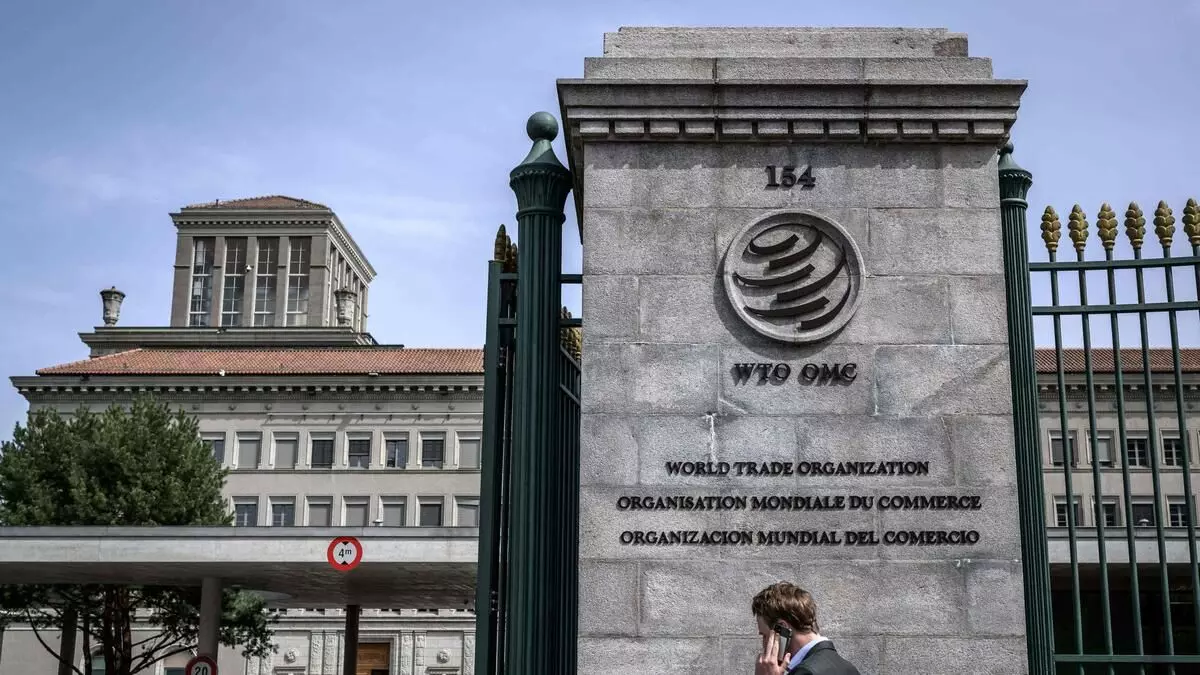Essential bulwark

Ahead of the 13th Ministerial Conference (MC13) of the World Trade Organisation, to be held from February 26-29, large parts of the world are struggling with acute food insecurity. The State of Food Security and Nutrition in the World (SOFI) 2023 report, released by the United Nations Food and Agriculture Organisation (FAO), revealed that the number of people facing hunger worldwide increased by over 122 million between 2019 and 2022. Around 2.4 billion individuals, predominantly women in rural areas, persistently lacked nutritious, safe and sufficient food in 2022. Child malnutrition, too, remained at staggering levels, globally. India fared relatively better. The Global Report on Food Crises (GRFC) 2023, released by the UN Economic and Social Commission for Asia and the Pacific (ESCAP), pointed out that India’s food security has improved over the past five years.
However, the MC13 has to be seen in a broader geopolitical and economic context. The world, in 2023, underwent massive turbulence, with the ongoing Russia-Ukraine conflict, Israel-Gaza war, and subsequent tensions in the Red Sea representing the tip of the iceberg. As per World Bank’s latest Food Security Update, released on January 22, the food price inflation exceeded overall inflation in 73 per cent of the 165 countries where data was available. The update highlighted Middle East conflict escalation, sustained oil price spike, El Niño impact, Russia's exit from Black Sea Grain Initiative, interest rate hikes, currency fluctuations, and long-term climate change impacts as looming risks over global food security. India, too, is not immune to these risks, and should push hard for its interests and concerns — that also echo with voices raised by other developing nations — at the MC13.
Undoubtedly, India’s top priority has been to pitch for an agreement on a ‘permanent solution’ on public stockholding which will allow India and other developing countries to give out higher farm support to their farmers in a flexible manner. Currently, this domain is governed by the Bali peace clause — an agreement reached during the Ninth Ministerial Conference of the World Trade Organisation (WTO) in 2013. It provides a temporary shield or moratorium, assuring developing countries that they would not face legal challenges in the WTO regarding their public stockholding programmes until a permanent solution was found. It may be recalled that WTO norms require that agricultural subsidies should not exceed 10 per cent of the value of agricultural production for developing countries. Bali peace accord shields developing countries from legal action for a breach of this limit.
Further postponement of a permanent solution appears illogical, and driven by Western interests. The ‘permanent solution’ proposal has received support from 80 developing member nations at the WTO, but other members including the EU and Brazil are erroneously trying to subject it to conditions pertaining to export performance and value of agricultural production. India has also proposed ‘30 for 30’ — highlighting 30 key areas of reforms coinciding with the completion of 30 years of WTO. A meaningful decision on the appointment of new members to the Appellate Body of the WTO, blocked by the USA, is also awaited. It is crucial that developing countries, including India, align to address key issues at MC13 in the interests of global and national food security.



